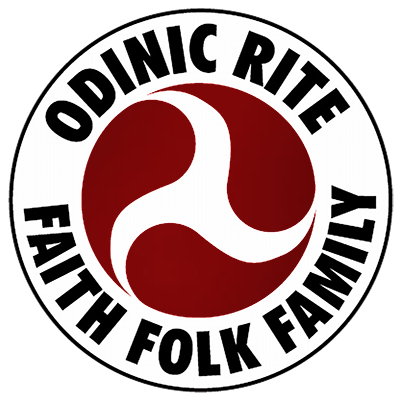Traditional Homeschooling vs. Unschooling
A funny thing happened when doing research on unschooling, I found that I had many, many misconceptions of what it really was. I homeschool four children in a “traditional” atmosphere, and I always thought of unschooling as a bit “hippyish”. I feel that I made a mistake in my rash generalization of traditional homeschooling as opposed to unschooling. What is unschooling, how does it compare to traditional homeschooling? I will detail what each method is and the affects they have on children and parents!
What is unschooling? Does it mean we do nothing and children eventually learn? Unschooling is a fairly modern term that started out meaning that children were merely taught at home, now unschooling has varying levels and several meanings. Some unschoolers simply ‘teach’ the basics: Math, English, and Writing. Others choose not to ‘teach’ anything at all. Some still have set goals for the day and try to meet them. Unschooling seems to mean to every level of unschooler that the child (ren) follow their own interests, no matter what those interests may be! Such as your child may really be interested in animals, so you take them to the Zoo often or go on many nature walks and hikes, maybe (if old enough) have them volunteer at an animal shelter! Their interest has them following learning, pursuing knowledge and not the other way around. A typical day at an unschooler’s involves the regular household happenings, but with the children involved with every facet of the day or at least with things they want to do, like cooking, sewing, gardening, reading, cleaning up or whatever! Life is the teacher, and we are the adventurers.
There are also some concerns that people have put forth in regards to unschooling. One is that the children need to be self-motivated. This is a very valid concern, but unschoolers say that each child will find their niche regardless of what is taught. Another concern is that the child will not meet state requirements. There are unschoolers in every state and they all meet the requirements. I know in my state (WA) children have to take a test every year for reading, writing and math. Another concern is how will the parent hold up in this form of schooling, this form requires a broad base of knowledge on general studies. One unschooling mother constantly is educating herself on a wide range of subjects so when the child come her with questions she can at least know peripheral information on the subject. This takes a strong commitment to learning on the parents’ part. Finally, how do unschooled students go to college? Well this is another valid concern, a portfolio of what the child has learned over the years is the same as any permanent record that any school has for your child. You can check with your state for specific criteria and the Internet is an excellent source for finding colleges (which from what I understand are numerous) that cater to homeschooled children. Therefore, the main drawback is the child is forced into structure instead of being able to create his or her own structure. Our world is very structured; business dictates schedules for everyone regardless of individual uniqueness, so the structured atmosphere is according to others (School administrators, etc…)wishes. Perhaps the child has become accustomed to structure and isn’t motivated to learn, this can be a drawback as well. Finally, the child could possibly miss out on opportunities for higher education. Next, how does this form of homeschooling differ from traditional homeschooling?
Traditional homeschooling is like a miniature classroom with desks, textbooks, a chalk or dry erase board, etc… School starts at a certain time and ends at a certain time. A traditional homeschooler has lesson plans, curriculum, and teaches a wide range of subjects. This is a very structured and controlled environment. This form is used by many homeschoolers and they have successfully homeschooled for years. This takes a high level of commitment to planning and organizing. Some only use unit studies that multitasks a number of subjects (math, English, social studies, etc…) into one topic. Other parents use purchased curriculums that have everything for them. However one decides to approach traditional homeschooling, the common thread is the amount of structure and control over the learning environment.
The positive aspect is that they have a concrete record of what was taught, how long it took, and what the child scored on it. The child is also capable of passing the state tests (if required). This is the choice of many homeschoolers, they enjoy the structure and control that they did not possess when the child was in public/private school. The parent can now choose the depth, slant and length that a lesson is taught. This is an approved form of homeschooling and is accepted by all school districts. Another positive is that some children are not self-motivated, and need to ‘try-out’ many subjects and topics before they find that niche. They may be lazy or uninspired, so the parent touches many topic until one clicks. Also, for first time homeschoolers, it is great for them to get their feet wet with a structured atmosphere. Some children even crave that organized atmosphere and may want that for homeschooling, either way this is a good choice when deciding to homeschool as well! Many positives, but what are the negatives?
The critics of ‘traditional homeschooling’ say that it fosters a sense that learning only happens at certain times during the day, and when the bell rings they may go! The children even become excited to stop learning. They become drones of homeschooling as opposed to drones of public schooling. Opponents also say that children lose their passion for learning and learn to only satisfy others want and desires without exploring their own. Many unschoolers boast the level independence and self-reliance that their unschooled children have is much higher then children schooled by traditional methods. Although this may or may not be true, there is a whole world of people that didn’t even homeschool and are still successful adults, just as there are homeschooled adults that are successful. Finally, parents need to make real time commitments for their children, for example, when school starts, writing lesson plans and researching subjects. This all takes time and for the homeschooling parent it can be daunting. Therefore, this methods main drawback is the time commitment and, perhaps, too much structure.
On a personal note, I use both methods. I choose to traditionally teach the core of learning: Reading, Writing, and Math. I let the children explore their interests otherwise. They help out around the house as well as assist in projects around the house that interest them (e.g. sewing, gardening, building things) I figure they will do whatever activities they see as their interest. I frequently ask them if they want to help or check out what I am doing to expand their interest. I also take them everywhere with me including on road trips and to Zoos and Nature walks. In my state, I have to test every year so I have to make sure that they are up to snuff on their core skills. I was really intrigued with the unschooling concept. I was really surprised at how common sense it was regarding how we learn! I definitely will give another look!
In conclusion, there are two schools of thought at work in the homeschooling community: traditional homeschooling and unschooling. They both have pros and cons, depending on your situation. Remember, it is up to YOU how your children should be taught; YOU know your children better then any governmental entity. Some sound words of advice are to check out your state requirements. Also, sit down and write exactly what your feelings and goals are for homeschooling. This should be done with your spouse. Finally, read, read, read all the different methods of teaching to see what you see as the most beneficial for your child (ren). Remember you know your kids best, you know what motivates them, interests them and bores them to tears; follow their lead, and you can’t go wrong! I looked into unschooling just for this article. I found that I had many misconceptions, and I found that this method merits some research and, perhaps, a trial run! Good luck with your homeschooling adventure!
Kathy Metzger




Looking to do homeschooling in the middle Tennessee area. I was wondering if anyone has any tips or leads on umbrella schools or cover schools that I can use to meet the legal requirements? Leaning more towards the unschooling, rather than traditional home school curriculum. Thank you for your time!